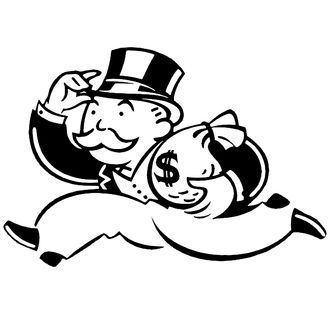
It seems to be Understanding Anger Day in the chattering classes, with the State of the Union address and the quickening presidential nominating contests creating a focus on how well various politicians are handling unhappy voters.
The Washington Post’s Greg Sargent reports that the president will likely try to speak to popular anger tonight instead of undertaking the traditional SOTU chore of boasting about administration accomplishments. But there is a hitch in that plan:
The problem is that, if Americans are indeed angry, unsettled, or dissatisfied, in many ways they appear to disagree about why they should be angry, unsettled, or dissatisfied.
No question about that, which is why Republicans should not simply assume high “wrong track” polling numbers are a guarantee of victory this November (that’s one of the mistakes John Kerry’s campaign made in 2004, as did Mitt Romney’s in 2012).
But a close look at what Republican presidential candidates are saying to fuel and channel popular anger, which is extensively undertaken by conservative intellectual Yuval Levin at National Review today, shows one common omission in GOP demonology: There are no corporate or Wall Street bad guys, unless they are deemed too cozy with government, the perpetual Satan figure.
Even where these candidates oppose a “business community” agenda item, their opposition is not aimed at the corporate beneficiaries, but at other objects of rage or fear, such as immigrants exploiting “porous borders” or crafty foreign governments planning to batten on some unfair trade agreement. And it is very, very difficult to find a criticism of pro-corporate public policies that are not definable as “crony capitalism,” offering specific companies a market-thwarting advantage over others via subsidies or some other preference. The idea that there are areas where markets don’t work and/or where Americans need protection from corporate predators (whether it’s their own employers or major titans who affect the broader economy) is entirely absent from GOP rhetoric. You are left with the impression that absent government intervention corporations like Koch Industries would be able to make life in this country, well, if not Edenic, then infinitely more prosperous and efficient.
And so, as candidates in both parties conduct a wide-ranging debate over the various interests that have at least partially spoiled the American Dream, there’s a gap in the GOP discussion that’s as obvious as a lost front tooth: Somehow corporate “job creators” never share responsibility with lazy welfare bums and freeloading immigrants and police-hating minorities and feminist baby-killers and Muslim-loving anti-Semites and every single organ of domestic government that is not being systematically degraded by conservative ideologues. In the Year of Anti-Elite Anger, the elites who collectively own much of the country are being given a pass by one of the two major parties so long as they do not consort with any other enemies, particularly government. It’s a phenomenon you’d think Democrats — whose disagreements over exactly how much blame for economic crises and inequality banks and corporations should bear and what to do about it get so very much attention — might want to mention a bit more often.






























